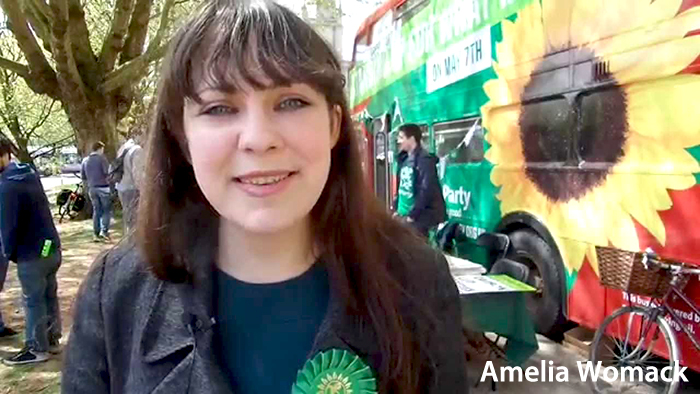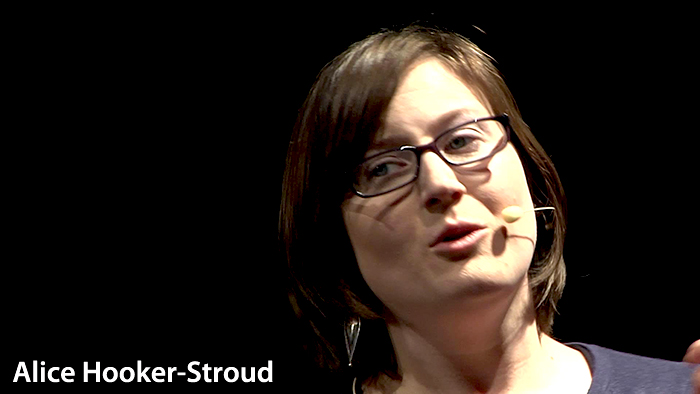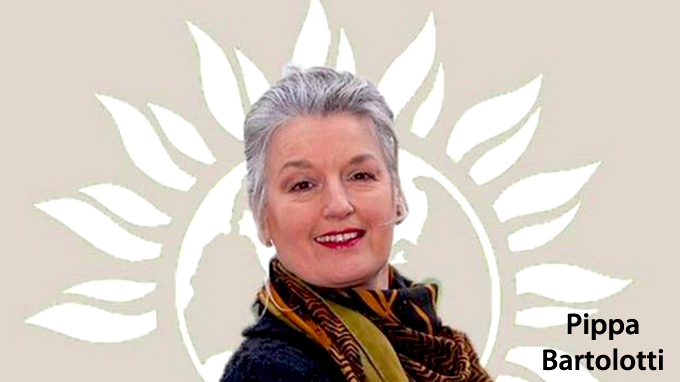In my previous post I told you that I was going to vote for Independent Louise Hughes as my constituency AM, and that’s what I did. She didn’t win, nobody expected her to win, but she finished fifth in a seven-horse race, above the Lib Dem and Green candidates; the second of those – and bottom of the poll – being Alice Hooker-Stroud, the recently elected leader of the Wales region of the Green Party of Englandandwales. So well done Louise for beating a party leader. (Well, a regional leader anyway.)

In fact, the poor showing by the Greens was for me one of the highlights of the night. Clearly their electoral appeal has been greatly over-estimated by just about everyone, especially themselves. I don’t think a single Green constituency candidate reached 4% (can’t be bothered to check them all), while on the regional lists, where they might have been expected to do better, they polled just 3%, a drop of 0.5% on 2011.
Not even that grande dame of the local Greens, Pippa Bartolotti, could break through the 3% barrier. What is wrong with the voters of Newport West; they are offered as a candidate the woman who’s led the Greens to the giddy heights they now occupy and yet the fools refused to elect her! Never mind, posterity will I’m sure be gentle on her. For her amanuensis, ex-con Martyn Shrewsbury, is hard at work right now making up excuses for the woman he adores . . . but does she reciprocate? And if so, how? And do you really want to think about it!
The Greens are so adept at self-publicity that we tend to forget what a tiny and insignificant party they really are.
You’ll see from the Dwyfor Meirionnydd constituency figures above that as elsewhere the new ingredient in the mix was UKIP, whose candidate on my patch, Frank Wykes, got 10.6% of the vote. Wykes describes himself as a Cornishman, which is rather disappointing. And this picture (below) don’t do him no favours either. Looks like it’s been taken from inside the female changing room at the local swimming pool . . . possibly with the same phone used to send the unsettling image to the gendarmerie. Leg it, Frankie!
The figures suggest that in Dwyfor Meirionnydd it was the Tories who took the hit from UKIP. (So it’s not all bad news.) Though I note with some anger that candidate Neil Fairlamb labels himself ‘Welsh Conservative’. No you are not! – you are an English bloody Conservative who happens to be in Wales; there is nothing Welsh about you apart from your location.
I represent that elite and transcendental band of true Welsh Tories, a man without a port of call, a political Flying Dutchman.
On the regional list I voted Liberal Democrat in the hope of seeing William Powell, a very decent and capable man, re-elected, but again, my hopes were dashed. The four elected on the regional list were Joyce Watson and Eluned Morgan for Labour, Simon Thomas for Plaid and – wait for it! – Mr and Mrs Neil Hamilton for UKIP. I mention them both because although Hamilton N. is, technically, the elected Assembly Member, his missus Christine will be doing the thinking and the talking for him.
What really did for William Powell though was not the calibre of the opposition – couldn’t be, could it! – but the re-election of Kirsty Williams in Brecon and Radnor coupled with the general decline in the Lib Dem vote elsewhere. Sad, but that’s how this Labour-biased electoral system operates.

Of course the one result everyone is talking about is Rhondda (make that ‘Rhonnda’ if you’re in UKIP) where Plaid leader Leanne Wood beat the popular and unassuming Labour candidate, Leighton Andrews. Yes, they were dancing in the streets of Treorchy on Friday morning when the result was announced. But then, they’re always dancing in the streets of Treorchy.
Though if you want an illustration of how far the Liberal Democrats have sunk then the Rhondda result provides it. Here the Green candidate got 1.1% of the vote – but still beat the Lib Dem candidate on 0.7%.
The Rhondda result was obviously a victory for a well-respected local candidate, unfortunately Plaid Cymru was unable to repeat this victory elsewhere in the south. Though two results deserve to be mentioned.
First, Neil McEvoy giving Labour a fright in Cardiff West, the first of many frights, I’m sure. Delighted though to see Neil elected on the South Wales Central regional list. I just hope that the Plaid establishment doesn’t ‘get to’ him. Plaid Cymru needs more Neil McEvoys and fewer sons of the manse and masters of cynghanedd, and fewer entryists using the party to promote socialist, environmentalist and other agendas.
And then there was the somewhat overlooked result in Blaenau Gwent. A result that in some ways was more praiseworthy than Rhondda and Cardiff West. There Nigel Copner – a name new to me – came within 650 votes of the winning Labour candidate. In the process local boy Professor Copner increased the Plaid share of the vote by a staggering 31.2%.
Overall, and given the problems being experienced by their rivals (dealt with below) Plaid’s very modest increase in both constituency (+1.3%) and list votes (+3.0%) must be viewed as a failure.
*
For the Conservatives it was also a case of little real change. They must be disappointed to have lost three seats and not to have repeated their 2015 successes in Gower and Vale of Clwyd, though in both constituencies they closed the gap on Labour incumbents who saw support fall away.
And they must be wondering what might have been if local leader Andrew R T Davies had contested the Vale of Glamorgan rather than sticking with the regional list. As it was the Tory candidate came within 777 votes of Labour minister Jane Hutt . . . but the seat might have been won if local farmer Davies had stood. There might yet be repercussions from his decision.
Yet the Tories had to contend with the rise of UKIP and the fact that the party on UK and Welsh levels is split over next month’s EU referendum; then there’s the crisis in the steel industry, the Panama papers, and the fact that many in Wales believe Cameron and Osborne are planning the reintroduction of workhouses.
Putting it all together the party’s showing wasn’t too bad at all. Down just 3.9% in the constituency share of the vote and 3.7% on the regional lists could even be seen as rather good in the circumstances.
*
For the first time UKIP now has Assembly Members, and an interesting bunch they are, who will provide hours of side-splitting entertainment, to the point where many of you will actually miss them when UKIP finally implodes.
Though it might not have come to pass without a favourable alignment in the heavens that saw the Assembly elections precede the EU referendum. Had it been the other way round there might be no UKIP AMs.
But already the ‘scorpion’ impulse is asserting itself and just days after the elections Christine Neil Hamilton is challenging Nathan Gill for the leadership – yet Gill was anointed by Farage himself! The entertainment has started! Though the leadership challenge can’t take place until Hamilton has taken the Oath of Allegiance (to Mrs Windsor), this is delayed as it’s proving awkward for him to get to Cardiff from his English home.
Perhaps now that he’s back among us we should start using his first given name. To help you become familiar with it, I shall henceforth refer to the new AM for Mid and West Wales as Mostyn Hamilton.
*
The real winner last Thursday was quite obviously the Labour Party. With an aggregate vote of 33.1% Labour gained 49.3% of the seats in what is supposed to be a system of proportional representation. It is nothing of the sort. It is a system designed to give the impression of being a PR system while reinforcing the position of the largest party. A system chosen by Labour to benefit Labour.
Let us hope that with the long promised reorganisation of Westminster constituencies there comes a better PR model. Or if we must stick to the same model, then there must be an increase in the number of regional list seats. In the Scottish Parliament 56 of the 129 seats are regional seats, that’s 43.4%. Here in Wales of course it’s 20 out of 60, or 33.3%. Come to that, why does Scotland have more than twice the number of MSPs for a population well short of double ours?
If, as is predicted, Wales’ representation at Westminster is reduced to 29 or 30 constituencies then this would provide the perfect opportunity to reform the system for Assembly elections. But whatever happens in the future it is now clear that the current system for electing AMs is flawed and discredited. It must be reformed.
Hello, Hello, Hello
I can’t finish without mentioning the Police and Crime Commissioner elections that also took place last Thursday, the results of which have just been announced. Labour took Gwent and South Wales while Plaid Cymru took North and Dyfed Powys.
A very good result for Plaid Cymru, and with Arfon Jones becoming PCC for GogPlod it means that I got one out of three right last Thursday. But then, with my constituency choice being a no-hoper (sorry, Louise), my list choice a long shot, Arfon was always my best chance of getting one right.
I don’t know Dafydd Llywelyn the new Dyfed Powys PCC at all, but someone has been trying to tell me there was something irregular about his selection. The allegation being that he had not been a party member for the stipulated length of time before being selected as a candidate. Surely not!
I would hate to think that Plaid Cymru is slipping into the bad practices of other parties.
~ ~ ~ END ~ ~ ~
NEXT: Why are housing associations allowed to use public funding to build properties for sale to ‘investors’? And more . . .












